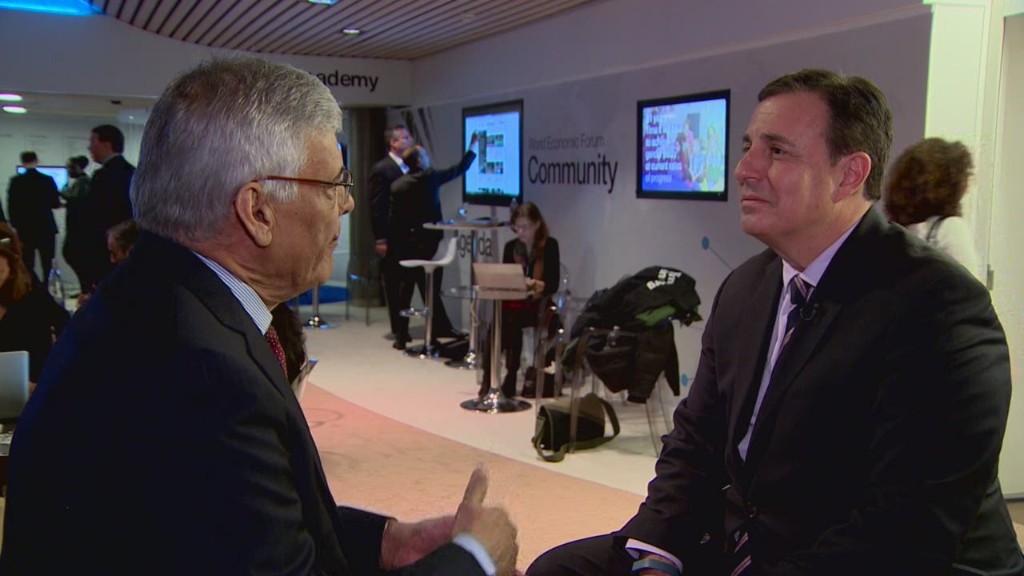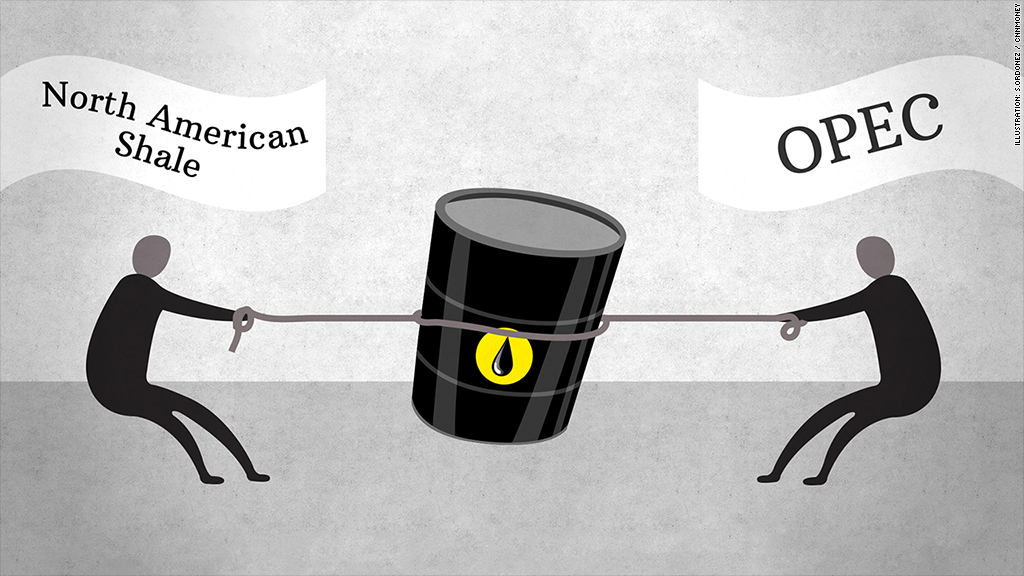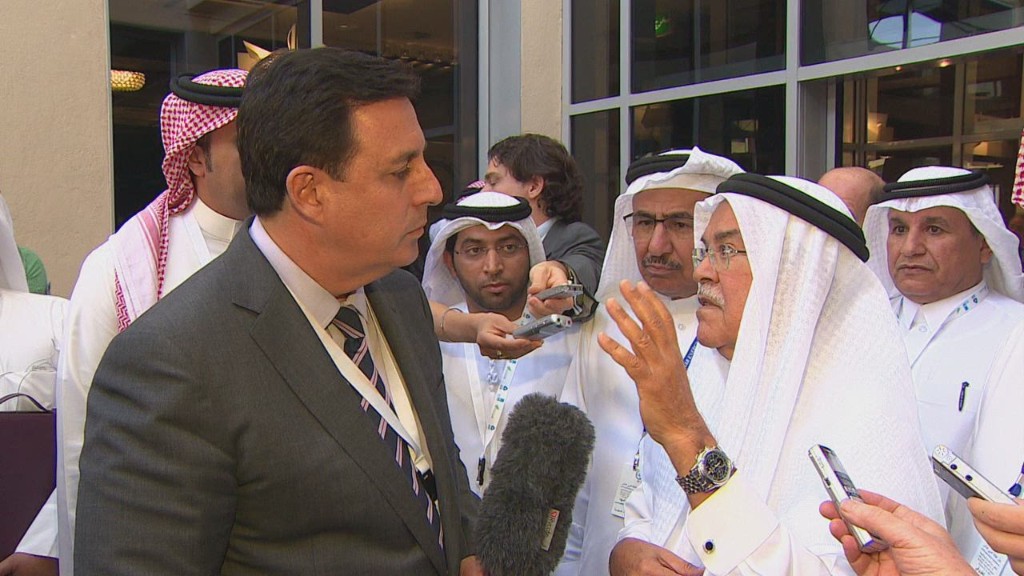
The plunge in oil prices is scaring some members of OPEC.
Nigeria's oil minister told the Financial Times Monday that the crash in crude oil prices could cause the cartel to hold an emergency meeting.
OPEC isn't scheduled to hold a regular meeting again until June. The last time it met, on Thanksgiving Day, a Saudi Arabia-led OPEC announced it would not cut production to offset an oil supply glut from new U.S. supply.
Since then, oil prices have plummeted 30%. It's hurt some oil producing countries more than others.
In theory, an emergency OPEC meeting could open the door for a cut in production and push prices higher. In reality, such an outcome looks unlikely.
"There are absolutely no signs that they are going to have an OPEC meeting of substance" anytime soon, said Tom Kloza, chief oil analyst at the Oil Prices Information Service.
In other words, even if OPEC held an emergency meeting, the group isn't likely to shift strategies.

Related: The 'smart money' is investing in oil now
Consider the source: It's important to remember the emergency meeting talk didn't come from Saudi Arabia -- the real power behind OPEC -- or even from influential allies like Kuwait and the United Arab Emirates.
They were made by Diezani Alison-Madueke, Nigeria's oil minister. While she does serve as OPEC's president and is responsible for coordinating emergency meetings, Alison-Madueke also represents one of the countries being hit hardest by the oil price drop.
Nigeria, the largest oil producer in Africa, needs oil prices of nearly $120 a barrel to balance its budget, according to Deutsche Bank.
But late last year the Saudi oil minister was quoted as saying it wouldn't cut output even if oil plunged to $20 a barrel.

Interactive: World's top oil producers
Saudis have the long view: The Thanksgiving decision, led by Saudi Arabia, to keep pumping oil at current levels appeared to be motivated by a desire to squeeze higher-cost producers in North America responsible for the oversupply of oil.
Saudi Arabia decided it was willing to stomach the low prices and steal back some market share from U.S. shale and Canadian oil sands producers.
The Saudis are clearly taking the long view. Abandoning that strategy now would represent a "remarkable change" of heart by OPEC, Kloza said.
Related: Fed official says Saudis 'engineered' oil crisis
Desperate Nigeria? But maintaining market share provides little incentive to Nigeria. It has all but lost its best customer: America.
U.S. imports of crude oil and petroleum products from Nigeria had plunged to just 1.7 million barrels in November, compared to 36.4 million barrels in July 2010, according to the U.S. Energy Information Administration.
"Here's the problem with Nigeria. They have an incredibly unstable government, the country is loaded with various factions and corruption and they don't have foreign reserves to weather the low price storm," said Kloza.
Related: End of OPEC is closer to reality
$35 oil? That storm may last a while longer, too.
Edward Morse, a Citigroup commodities guru who correctly predicted the oil crash back in 2008, warned in a research report on Monday the recent oil price rally "looks like a head-fake," not a turning point.
Morse, who recently said the "end of OPEC" might be closer to reality now, said oil is not going to bottom out until the spring. He believes crude could sink to $35 during the second quarter and not return to the $60 range until next year.
No wonder Nigeria wants an emergency meeting.


